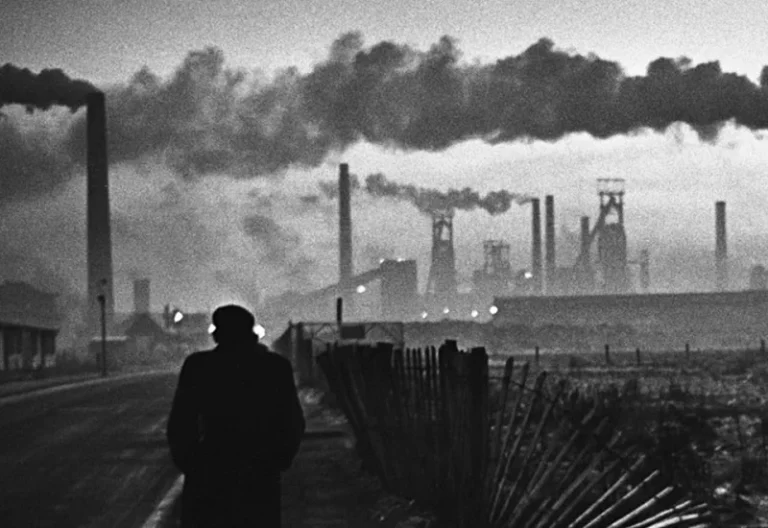if.... (1968) review
film by Lindsay Anderson
Lindsay Anderson’s If…. is the first film in what is known as the Mick Travis trilogy named after the recurring protagonist played by Malcolm McDowell, portrayed in all three films. A role that would ultimately attract Kubrick’s attention, landing McDowell the iconic and unhinged role of Alex DeLarge and one of, if not the most memorable, performances of his still active career. Winning the Palme d’Or and later named one of the greatest British films of the 20th century, it found its way into obscurity until its Criterion release stoked new interest.
Review by: Aaron Jones | Filed Under: Film Reviews
September 11, 2024
During middle school in the 80s, I had an unhealthy obsession with “A Clockwork Orange,” which selectively preoccupied my circle of friends. Growing up in Santa Cruz, California, there was a reasonably large platform of influence for underground culture, which included music, art, books, and cult and arthouse movies. “A Clockwork Orange” was on constant rotation at the local revivalist theater known as The Sash Mill, where I was first introduced to it as a double feature with “Quadrophenia” in 1987.
In the throes of my obsession, I found a book depicting the 100 best movies of all time, and within it was coverage of a Malcolm McDowell film I had never heard of called If…. From that point on, I searched high and low for this elusive film. Before the days of eBay and the internet, it made locating obscure films very difficult especially since every single video store in my area did not have it. We had quite a few specializing in world arthouse cinema, including plenty of memorabilia stores, but it proved impossible to track down. Until I was lucky enough to learn that it would be shown on television. Out of blind luck, I managed to dub it onto a VHS tape.
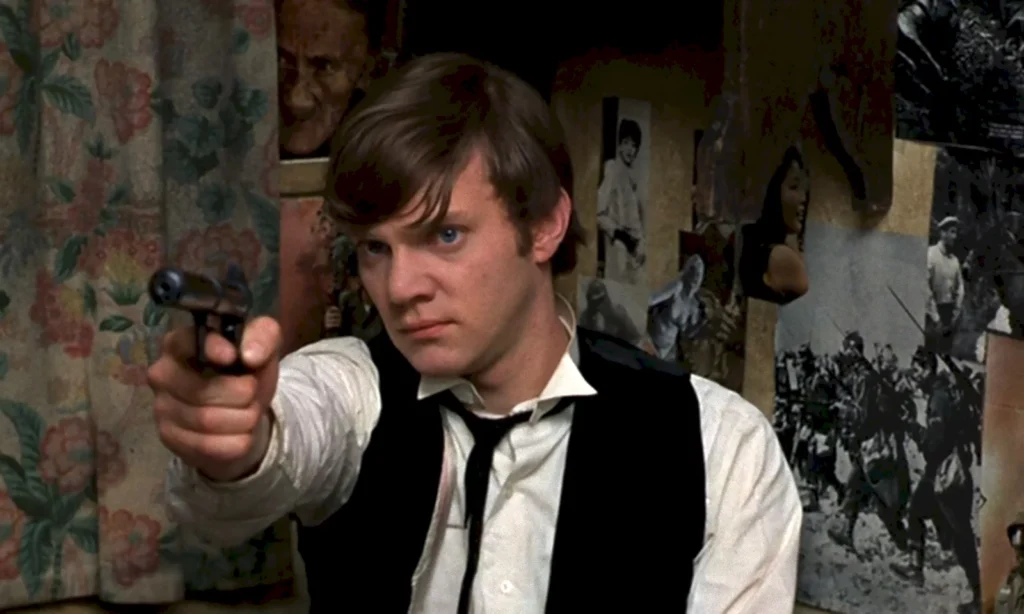
Watching If…. for the first time was one of those cinema moments that stays with you over the years. It made a significant impression on me as my interest in arthouse cinema was just beginning to grow, and it synchronized immediately with my growing inclination toward anti-authority politics. I backed up my copy and brought it to every friend’s house until they were all equally sick of it, confused by its avant-garde style and outrageous moments. As much as I understood about the film, just as much eluded me, intriguing me even further. It was one of the films that led to a deeper understanding of the language of cinema, and now, all these years later, it is something I am still compelled by and remains one of my favorite works of British cinema of all time.
If…. tells the story of an English boarding school for boys where the students conform to strict systemic hierarchies under tyrannical influence, which it immediately illustrates. Tapping into one of the film’s core themes, exploring institutional order and its dominion over those obedient to its discipline with unwavering loyalty. As we observe the student body of middle-class boys interacting with each other, a clinical and ineffectual shroud lingers within every scene, which shares a harmonious symmetry with empirical allegiance and a subdued anachronism.
Those reaching to access their autonomy are made to suffer more severely, introducing us to Mick and his friends, Johnny Knightly (David Wood) and Wallace (Richard Warwick), who are made into examples by the sadistic enforcement of punishment and obedience by the arrogant prefects, also known as “whips,” senior students entitled with supremacy over the remaining student body. The prefects stand as egregious symbols of authority within the school’s milieu but yield to the higher dominion of the faculty. The dividing line in the hierarchy is illustrated through the prefects’ sycophantic displays towards the ineffectual staff who, in unison with the prefects, act upon a consortium of corruption and dehumanizing methods within the school through their transgressions, adding further notions to those who suffer the cruelty of authority being the ordinary individual often at the hands of undeserving wielders of power.
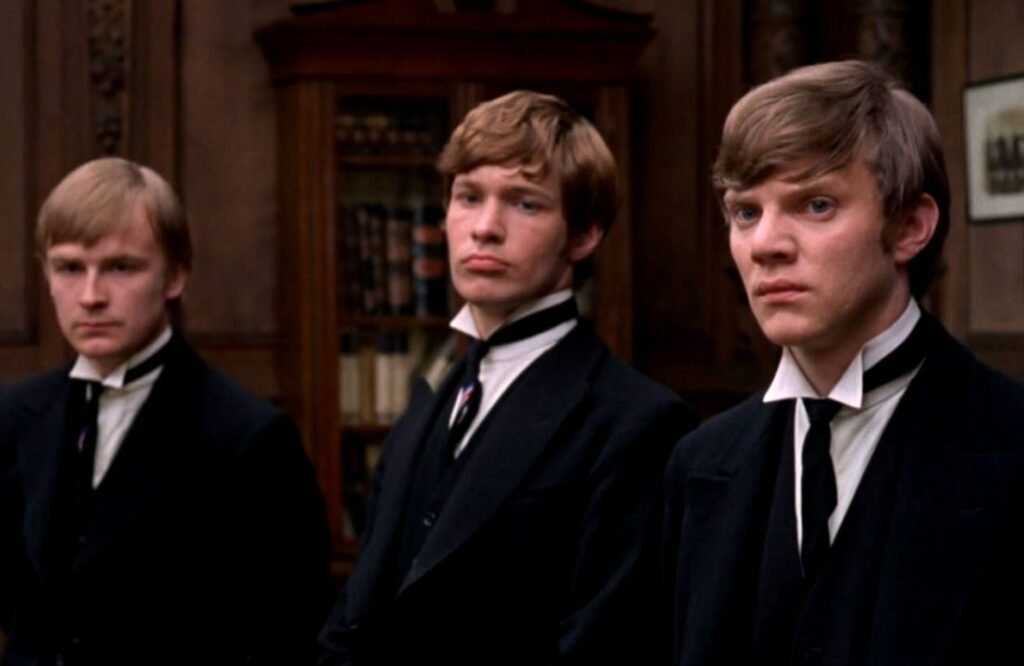
Lindsay sets up comparisons to fascism while examining the sociological impacts, observing moments of internalized aggression conveyed through some of the youngest students who turn on each other when there is no place lower in the pecking order to descend upon—adding a poignant example of the abused becoming the abuser and the self-destructive serpentine nature of hierarchies.
Ambiguously touching on ideas that institutions, through the pressure of traditionalism, are templates for social indoctrination, preying on young, impressionable minds and molding them into malleable citizens of conformity. If…. lures you with youthful charm, yet its conclusions elicit an ever-increasing pensiveness as the film’s fragmented narrative observes sexual licentiousness, obedience, and soul-crushing conformity through aggressive discipline, exploring parallels with captivity and the prison system.
As the film accompanies Mick and his faction more intimately, there is an inclination to see them as prisoners both physically and psychologically. Rejecting the institution whose nationalistic and faith-driven fervor adds nothing to their identity and further fuels their disdain and illuminations seen through the only place that reflects their characters’ identities and rejection of their own culture. A microcosm that is incongruous with the outside, the rules of the institution layered with images of sexual desire, insurrection, and revolutionary and defiant historical figures exemplifying teenage angst and passion. A shrine to cultures unaffected or without allegiance to capitalist industry is where we see them in their natural state in a nurturing space of solidarity, revealing their intimate bond and loyalty unreplicated anywhere else within the film as comrades of ideology.
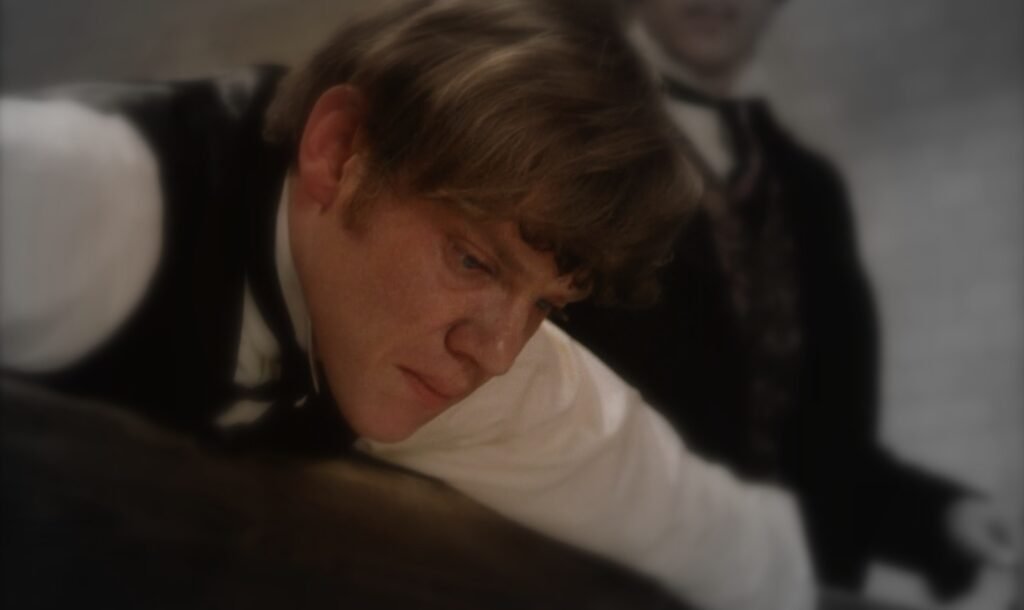
Where they are preoccupied with the film’s only music, a congo musical choir that resonates with formidable and spiritual awe suggests this sacred space shares the archetypes of a church—morbidly preoccupied as products of oppression. In this sacred space, life exists on the precipice of a lunatic fringe bound by blood, poets of militant revolution, and purveyors of visceral dissent.
Orchestrations of liberty and jubilant reverie are met with romanticized visions of primal acts of insurgency and sedition. Through its new-wave provocations, the film commits to a tonal shift in which the film had previously hinted but only now has allowed a whole gradient of realism and surrealism to mesh as they explore the outside world and themselves.
Filmed at the previous schools for multiple crew members, adding another layer of personal inspiration bordering on a semi-autobiographical, including director Lindsay Anderson. Whereupon, I discovered that some of the weightier issues of the script were purposefully left out and were to be reviewed by the school board to earn approval to shoot on the school’s premises. I further learned that none of the issues they had with the script involved sexually illicit predatory incursions with priests on the students. This possibly alludes to the idea that such behaviors were fundamentally systemic to those attending.
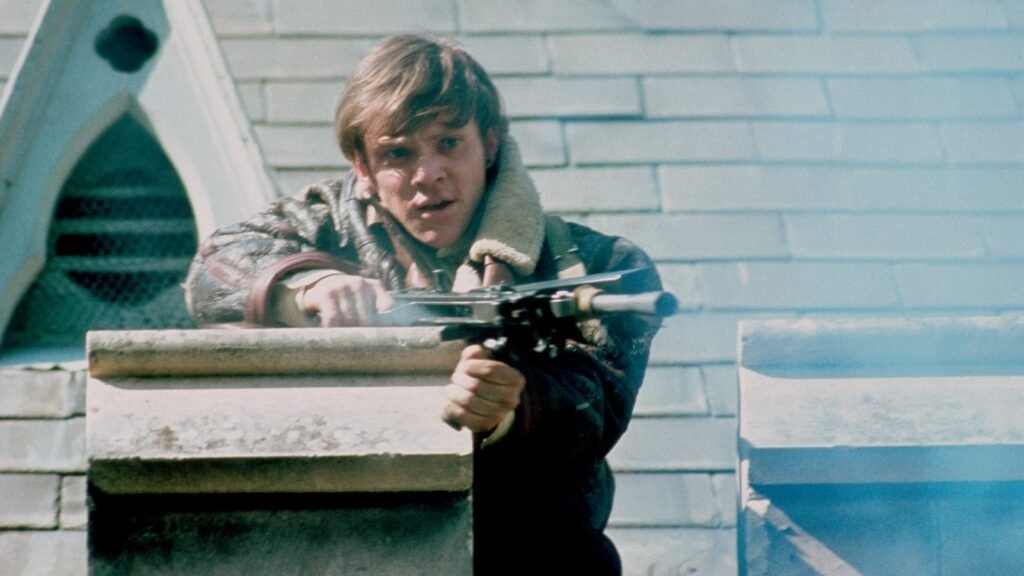
Brushes with homosexual relationships as one of the younger students stands as a cornerstone between the “whips” and Mick’s group. Marking a series of scenes linked by their liaisons, the first in which the prefects openly discuss the barter and trade of their subordinates as their unwavering and clinical appeal is further exemplified through their lack of consideration for those who serve as vessels for their salaciousness. The latter subtly captures the harmonious exchange between the student and Wallace, one of Mick’s cohorts, juxtaposing both groups’ different personalities, oppressively exploitative and nurturing tendencies and bringing an impactful example of the film’s nonjudgmental point of view toward those who are discriminated against by the very social structures that support them.
It carries a reserved empathy in its exposition of cruelty, where a corporal punishment scene limits us from watching the act in its entirety. Only allowing us access to the act itself after Johnny and Wallace have received their punishment do we see the violence cloistered behind the walls of the gymnasium where Mick is subjected to a more severe whipping than his friends, making him an example of his overtly defiant posturing toward authority and those who faithfully represent it.
This incursion stands as a testament to the larger current within the film, which injects acrimonious commentary on British rule and class division in the here and now. Where parasitic oppression is birthed in a toxic culture of sadism and wanton lust for dominance and aggression, and our preludes to war are upheld by the very figures who masquerade as pillars of respectability and decency.
Anderson lampoons these symbols and institutions of British rule nationalism and traditionalism through the film’s conclusion, countering oppression with violence, which I would be inclined to rally behind a comeuppance so earnestly earned. I immediately thought of the films of Michael Haneke, who always uses cinema as a mirror to reflect back our hypocrisies, just as Lindsay demonstrates the perversion of human pathologies. Rather than finding exhilaration through hypocrisy and perverse cyclic order I sensed the nihilistic farce that it is and wondered if this was the cunning and vexatious personality of Lindsay Anderson I so frequently heard about over the years.
Some 50 years later this film has naturally taken on new significance with school shootings and mass murders that have become so commonplace. The film serves as a precursor to the global phenomenon transcending beyond its original context of fantasized 60s revolutionary influences and finding new meaning in contemporary settings.
If…. is a film that is most comfortable resting between ancillary hostilities that eventually results in the emergence of revolution. The tension depends on it oscillating between causation and impact which it does like a well orchestrated chorus. A film so completely encapsulated by its time while contemporary audiences may see it from a privileged point of view it remains an poignant example of teenage angst wherever your opinion lies. An anti-establishment ode to youth and revolt with a cynical overview of the British school system and hierarchies that further reaches into the banality of evil in our compliant relationship with authority.
For the non-British community, some may naturally make comparisons to the Harry Potter films or books. However, I think it effectively indicates that these experiences were fundamental to the British school system, and most of Britain’s youth experienced them for generations. These experiences have influenced not only cinema but also other avenues of media, including Pink Floyd’s The Wall and the music of The Smiths, revealing similar experiences through their works as just a few examples of its pervasive and unfortunately lasting negative impact.

Author
Reviewed by Aaron Jones. Based in California, he developed a passion for film from a young age and has since viewed over 10,000 films. His appreciation for the medium led him to film criticism, where he now writes for CinemaWaves, offering analysis of both contemporary releases and timeless classics. In addition to his work here, he has contributed to other publications as well. Feel free to follow him on Instagram and Letterboxd.
When her young son Minato starts to behave strangely, his mother feels that there is something wrong. Discovering that a teacher is responsible, she storms…
A decadent London aristocrat hires a man-servant to attend to his needs. However, the balance of power starts to shift. Joseph Losey’s 1963 film, The Servant is is loosely based on Robin…
In 1943, Rudolf Hoss, commandant of the Auschwitz concentration camp, lives with his wife Hedwig and their five children in an idyllic home next to the camp. Hoss takes…
Also known as the Kitchen Sink movement, was a transformative era in British cinema that emerged in the late 1950s and continued till the late 1960s. It was a period…
Film criticism is an essential part of cinema, serving as a bridge between filmmakers and audiences. It focuses on analyzing, evaluating, and interpreting films, while providing…
Arthouse film refers to a category of cinema known for its artistic and experimental nature, usually produced outside the major film studio system. These films prioritize artistic…




